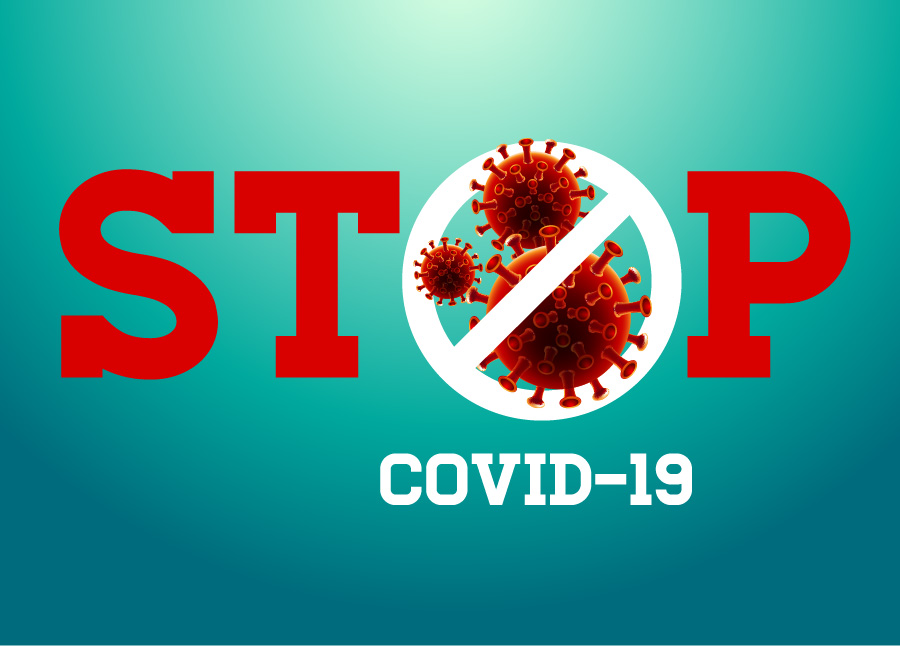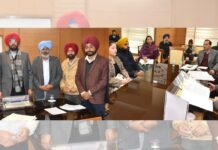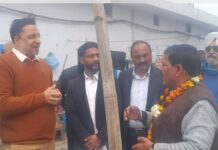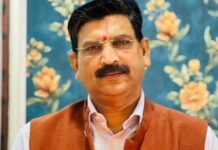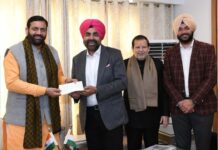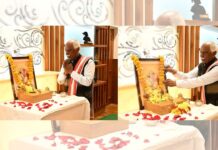DELHI MAY11, 2021:
Experts from wide range of disciplines came forward on one common virtual platform to discuss the best approach to address the state of emergency of COVID crisis at a meeting on 10th May 2021.
The online meeting “Addressing COVID Resurgence – S&T Perspective” organised by Technology Information, Forecasting and Assessment Council (TIFAC), an autonomous body of Department of Science and Technology (DST) brought together scientists, doctors, drug manufacturers, industry and policy makers brainstormed on ways to check the spread of the virus.
“There is huge requirement of oxygen in the country with the supply chain not being robust, India is mostly dependant on other countries for critical equipment like oxygen concentrators. The S&T community along with Industrial partners, has to find major means and ways to make sure our dependence is reduced. Vaccine production in the country is also dependant on raw materials from other countries hence there is a need for major push on active pharmaceutical ingredient (API) to be produced in the country,” said Dr. V.K. Saraswat, Chairman- TIFAC Governing Council and Member NITI Aayog. “We have to focus on creating a S&T infrastructure for short term training of the paramedics, doctors coming directly after MBBS for augmenting the preparedness of our Healthcare infrastructure,” he added.
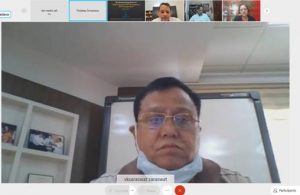
Dr Saraswat emphasised on ramping up of research facilities particularly in genome sequencing, use of S&T methods like drones for supply & distribution of the vaccines and various drugs, use of technology like AI for facilitation & management of vaccine production and complete vaccination of India’s population to stop the spread of the virus. He also urged the panellists to come up with programs that give solutions to mitigate the immediate and mid- term problems.
“Science, Technology and Innovation are the central pillars to address the issues related to second wave of COVID 19 and similar challenges of the future as well. There are several different components of S&T that are relevant for COVID-19 including Understanding of the behaviour of the virus from its transmission to its impact; development of relevant Technology & Products; and Manufacturing at scale,” highlighted Prof. Ashutosh Sharma, Secretary DST. “All of these have to connect seamlessly. This is a major lesson that we already learned and implemented in the first wave and we must not forget it,” he added.
Prof Sharma said that there are other aspects of S&T which are equally important. These include well researched White Papers for undertaking focused specific S&T interventions to be undertaken post COVID 19. The one released by TIFAC has led to a number of follow up actions in several sectors. “Other important activity is communicating about COVID 19, which is being done by Vigyan Prasar. Almost one COVID bulletin is disseminated through the India Science OTT Channel. TIFAC has also made a portal for immigrant labours and employees for matching of supply, demand and required skills. Finally, mathematical modelling is a great tool for decision making, planning and governance, DST has supported 30 different groups across the country for the modelling activity and it would be taken forward in the future also,” he added.
Dr. Vijay Chauthaiwale, Healthcare Consultant in his address mentioned “Any pandemic can be evaluated and contained at three levels which are Diagnosis, Prevention and Therapy or treatment. The second wave has shown our deficiencies as well as strength of our society in all these three aspects. Therefore, we need to analyse them a little bit deeper. The picture on the vaccine front will turn significantly better in coming weeks with enhanced supply from both the existing suppliers as well as the new players like SPUTNIK, Zydus Cadila and others coming in.”
Dr. Raman Gangakhedkar, former head scientist of the Epidemiology and Communicable Diseases Division at the Indian Council of Medical Research presented his ideas for the road ahead and said “It is time we need to reflect within, since the virus is mutating slowly and undergoing a convergent evolution, we need to ramp up our vaccine manufacturing capabilities, to come up with vaccines very quickly, essentially we need to invest in R&D for development of newer vaccines against the newer mutations of the virus. The only way to fight with infections is through drug development, for which support to drug development needs ramping up. The government should invest in setting up standard sites where clinical trials can be conducted which could save cost and time. We need to develop a pan corona vaccine and also think about Anti Microbial Resistance.”
Prof. Pradeep Srivastava Executive Director, TIFAC outlined the objective of the meeting in the welcome address and targeted to bring out an action plan document on how to contain the COVID 19 pandemic.
Other eminent speakers included Prof. Nandita Das, Professor Pharmaceutical Sciences, College of Pharmacy and Health Science, Butler University USA, Shri P K Pathak, Special Secretary, Ministry of AYUSH and various stakeholders deliberated on issues of critical importance like Clinical/ Health Perspectives: Infection Rate/ Death Rate/Disease Prognosis/Treatment Methodology & India’s Preparedness in Drugs & pharmaceuticals/ Vaccines/ Medical Equipment/ Infrastructure: Need- Actual & Availability (Current) ,Supply/ Distribution: And Plan for exigency- Existing manufacturers scaling up, New Plants/ Technology, Acquisition from Foreign Sources if required, requisite funds.
The meeting would help structure an action plan for the country to effectively address the rampaging COVID pandemic.

 हिंदी
हिंदी
